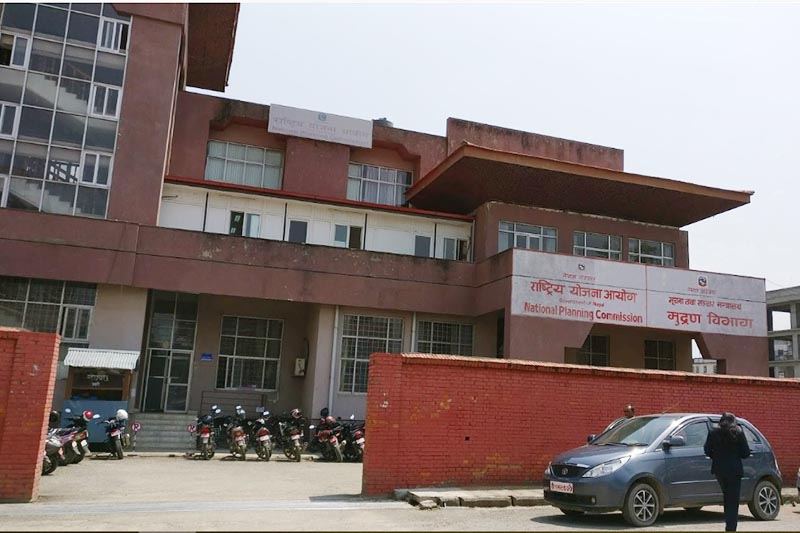Annual financing gap of Rs 585bn to meet SDG targets: NPC
Kathmandu, June 21
The National Planning Commission (NPC) has projected that the country will face a financing gap of Rs 585 billion per year to meet Sustainable Development Goals (SDGs).
The final analysis conducted by NPC, the apex body that frames the country’s development plans and programmes, show that the public sector and the private sector are expected to face financing gap worth Rs 218.2 billion and Rs 366.8 billion per annum, respectively, to achieve SDGs.
SDGs are ambitious universal goals supported by the United Nations to end global poverty, protect the planet and ensure peace and prosperity.
As per the NPC report, the annual investment requirement for 2016-19 is Rs 1,055.8 billion, for 2020-22 is Rs 1,558.5 billion, for 2023-25 is Rs 2,046 billion, and for 2026-30 is Rs 3,069.3 billion, thereby totalling the average annual investment requirement for the entire SDG period at Rs 2,024.8 billion. The total investment requirement for achieving the targets set for 2030 is 47.8 per cent of the gross domestic product (GDP) value on an average.
Of the total investment requirement, poverty accounts for 7.5 per cent, while inclusive growth (mainly labour and tourism), agriculture, health, education and gender accounts for 2.8 per cent, 5.8 per cent, 6.6 per cent, 15.5 per cent and 0.7 per cent, respectively.
In proportion to GDP, the financing gap is on an average 8.8 per cent for the period of 2016-19, 12.3 per cent for the period of 2020-22, 13.01 per cent for 2023-25 and 16.4 per cent for 2026-30. Meanwhile, the overall average financing gap stands at 12.8 per cent of GDP throughout the SDG period, as per NPC report.
The NPC report states that Nepal needs to invest over Rs 4,500 billion till 2030 to provide quality education, over Rs 2,000 billion to ensure good health and well-being, and over Rs 2,200 billion to eradicate poverty. Similarly, the country needs to invest big in transport, industry and ICT, where over Rs 6,000 billion must be spent till 2030 to build resilient infrastructure, promote inclusive and sustainable industrialisation, and foster innovation.
NPC officials opine that the country should bridge the financing gap for SDGs especially through domestic and foreign investments. “The government should work on different macroeconomic policies and make them investment-friendly and win the confidence of investors,” said Laxman Aryal, secretary at NPC.
Meanwhile, representatives from the United Nation Development Programme said that the government’s plans and its implementation should go side by side to ensure that SDGs targets are achieved.






